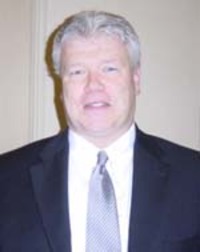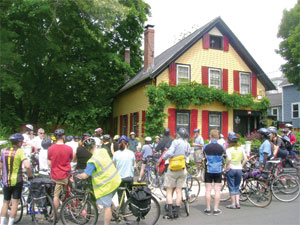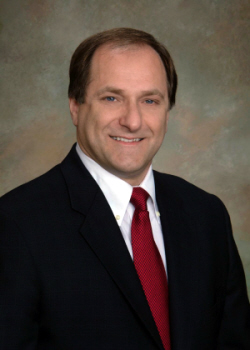These five Somerville Police Officers (L to R in both pictures: Carmine Vivolo, Dan Rego, Stephen Carrabino, Kevin Shakelford, and James Slattery) went to Washington, D.C. to assist with security for President Obama's Inauguration last week. They were part of a group of 85 officers from NEMLEC (North East Massachusetts Law Enforcement Council), which joined approximately 8,000 officers from across the country and an estimated 10,000 National Guard troops in providing security for the historic occasion. Photo took place at the Law Enforcement Memorial in D.C. |
|||
|
(The opinions and views expressed |
|||
The Some of my colleagues believe I have There is no arguing they were wrong and out of line, As far as noise and Any Bruce M. Desmond Alderman at Large and Chairman of Licenses and Permits |
|||
By Cathleen Twardzik In In today's world, in In accordance Under Presently, "Clear" plastic bags must However, "Basically, The City of Somerville Our Green Cities recognizes In 2007, The Since 2006, the City of Somerville High School (SHS) does "There is an ecology/oceanography course offered at SHS. It has existed for many years," said Guilmartin. Specifically, the ways in which the school protects the environment are great. Student Cara Carpenter recently initiated a brand new However, Styrofoam plates and cups are still used in the cafeteria at Somerville High School, according to Guilmartin. |
|||
Tyson Clark Cast in Chitty Chitty Bang Bang CHITTY CHITTY BANG BANG plays at the Citi Performing Arts Center Wang Theatre Wednesday, February 4 through Sunday, February 8. Performances are Wednesday through Saturday evenings at 7:30 p.m., with matinees Saturday at 2:00 p.m. and Sunday at 11:00 a.m. and 3:00 p.m. Tickets are priced at $72.50 – $25.50; all prices include a $3.00 facility/education-public programming fee per ticket. Tickets for CHITTY CHITTY BANG BANG are on sale at the Citi Performing Arts Center Box Office, online at www.citicenter.org or by calling 866-348-9738. Discounted tickets are available for groups of 15 or more by calling Citi Performing Arts Center Group Sales at (617) 532-1116. CHITTY CHITTY BANG BANG is an exclusive attraction of The Club at Citi Performing Arts Center. Club members can purchase tickets by calling (877) 232-8898, online at www.citicenter.org/club or in person at the Box Office Monday – Saturday, 10 AM – 6PM. |
|||
| Plan will give municipalities revenue tools to offset local aid cuts, manage more efficiently Despite the immense financial challenges facing the Commonwealth during this national recession, Governor Patrick today reaffirmed his commitment to cities and towns, announcing that he will protect education funding from cuts and will limit reductions in state aid to cities and towns this year and next. The Governor told members of the Massachusetts Municipal Association gathered for their annual meeting that he will prevent cuts to so-called Chapter 70 education aid during the next round of mid-year spending reductions he will make next week. Additionally, he will hold Chapter 70 funding for city, town and regional schools at the fiscal year 2009 (FY09)level of $3.984 billion in his fiscal year 2010 (FY10) budget plan he will also release next week. That level, a 6 percent increase over FY08, was an all-time high for Chapter 70. Funding Chapter 70 at FY09 levels in the face of our current fiscal crisis is about ensuring that we don't sacrifice tomorrow's promise during today's downnturn," said Governor Patrick. An unprecedented national economic downturn has resulted in a loss of nearly $2 billion in revenues this fiscal year and prompted the Governor to make mid-year spending cuts last October. The Governor was able to hold Local Aid and Chapter 70 education aid harmless by making deeper cuts in other state programs. However, economic conditions have rapidly deteriorated since then, requiring a second round of cuts that will have to include Local Aid. Recognizing that cities and towns rely heavily on state aid for municipal services like police and fire and to help mitigate the property tax burden, Governor Patrick will limit reductions in unrestricted state aid to communities both in his emergency cuts and in the FY10 budget. For FY09, the Governor will trim $128 million from Lottery Aid and Additional Assistance, which-along with Chapter 70-make up the biggest portion of Local Aid. Taken together, this FY09 cut represents 2.3% of the total Local Aid budget. For FY10, Governor Patrick's budget will combine Lottery and additional Assistance Aid into a new category called General Government Aid. Combined with level funding Chapter 70, Local Aid will be cut by $375 million, or 7.1 percent below FY09. To offset these unavoidable reductions, the Governor will propose a series of tools to help cities and towns generate much needed revenue. A one cent increase in the statewide meals and room occupancy taxes will generate approximately $150 million statewide which would be distributed using the existing lottery formula and will help to offset a portion of the Local Aid cuts. Additionally, the state will use a small amount of existing revenue to ensure that no community receives a total Local Aid cut of more than 10 percent. Taking the new revenues and additional mitigation aid together, the net Local Aid cut is reduced from $375 million to $220 million, or 4.2 percent below FY09. Additionally, to further blunt the impact of Local Aid cuts and give communities the ability to manage their own budgets, the Governor is proposing to give cities and towns the ability to levy an additional 1 percent local options meals and room occupancy taxes. He will also re-file his proposal to eliminate an outdated property tax exemption for telecommunication companies. Taken together, these additional tools could generate up to $200 million statewide. "This plan gives Massachusetts cities and towns the tools to offset the short-term pain of the economic downturn while also laying a foundation for growth and revenue stability for the better days that are ahead of us," said Governor Patrick. "If we cannot provide direct aid, let's at least untie the hands of local communities to capture the savings and raise the revenue within their reach." As part of his comprehensive Emergency Recovery Plan, the Governor will file the second Municipal Partnership Act (MPAII) next week. Designed to help cities and towns help themselves by saving money, the bill will require municipal managers and municipal unions to devise health care plans as least as economical as the GIC. In order to help communities meet this cost savings standard, the GIC entry requirement will be reduced to 50% union approval. Failure to meet or exceed the GIC standard within a certain period of time will result in reductions in local aid payments. Additional MPAII cost-savings proposals include responsibly extending pension schedules, moving retirees to Medicare coverage and a series of initiatives to encourage and facilitate regionalization of municipal services and other reforms around procurement and advertising. |
|
| Congressman Capuano to Appear at Emmanuel College On Friday January 23rd Congressman Mike Capuano will host an economic roundtable with representatives from academia, business and labor to discuss the status of the Troubled Asset Relief Program (TARP) and the economic stimulus package currently working its way through Congress. Following are the details: Friday January 23rd from 9:00 – 11:00 AM Media Availability at 11:00 AM Emmanuel College; 400 The Fenway, Boston Jean Yawkey Center Trustees Room, Third Floor Although the discussion itself is closed to the media, some participants will be available for questions when the roundtable concludes at 11:00 AM. |
|
Jeremy F. van der Heiden For The law contains two brief but important In addition, motorists now have to wait to pass In respect to police training and enforcement, police The bill also includes a piece that David Watson, the Bicyclist's safety, however, is not With bicyclist's safety being such a big Watson described Boston and the surrounding areas as Bicycling Magazine placed Boston in When asked what the future holds for MassBike, Awareness will also be key in making sure that For |
|||
Part 7: Drug policy
Prohibition -Abraham Lincoln If Somerville Thirty-five years ago, Richard Nixon declared If you drive northwest on Mystic LEAP member, Former federal The alternative? Brown points to a study But the hard evidence has no impact on drug LEAP member Jim Gray The plain truth is that drug Add He's right. With alcohol prohibition, murder One of Jay Fleming, a thoughtful LEAP The number of Americans behind Imprisonment Fleming's remorse suggests another drug war impact. Nor And of course the LEAP's solution is to legalize, A portion of the enormous revenues and reduced costs This is not a matter of Nixon was right to call drug abuse an epidemic, |
|||
Measure Scheduled for Consideration Today Congressman Mike Capuano proposed a number of "This gives Language changing the membership of the "This will give Additional Congressman Capuano also worked with his colleagues "The H.R. 384 will move to the Senate for consideration once it passes in the House. |
|||























Reader Comments